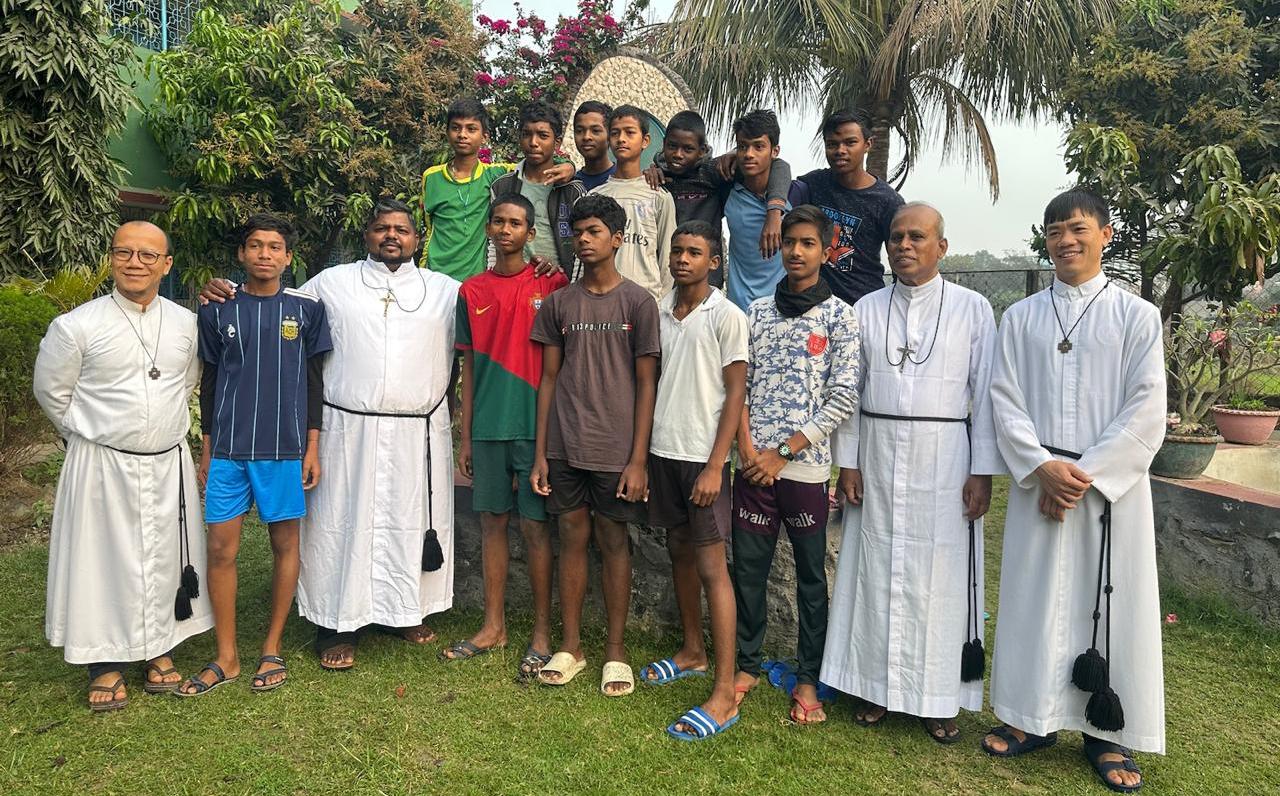
7 minute read
PROGRAM UPDATES
India
The Chetana Boys Hostel is a mission of the Marist Brothers in India. The Hostel belongs to the Diocese of Asansol and has been administered by the Brothers since 2010.
The Hostel is home to 65 boys from the Santhal tribe of West Bengal. The Santhal tribe belong to the lowest caste in India and thus faces poverty, discrimination and inequity. Children often must work alongside family members cultivating rice rather than attending school.
Santhal boys who live at the Hostel have the opportunity to attend local high schools while being provided with a home, meals, and the resources required to complete their studies. The Brothers and Hostel staff provide tutoring and other extracurricular personal development activities, such as sports days.
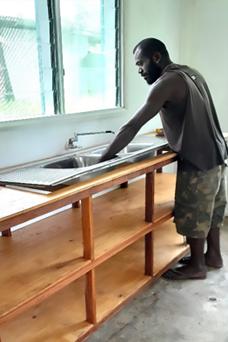
Br Jiji Dhassad, Director of the Hostel, recently reported that eight students had completed Government exams and received passing grades. A pass means these students will be able to continue their secondary studies.
“We are so happy and grateful to all the teachers and AMS staff and benefactors and students,” said Br Jiji. “Because of your big contributions to our students from our Hostel, 8 boys are able to go for higher education to the college. Thanks to all of you. Give our Gratitude to all the AMS staff, beneficiaries, parents and students.”
Bougainville
St Joseph’s College in Mabiri recently completed the latest phase of a building project. This phase included maintaining the STEM block, installing hydration stations, upgrading computer laboratories, and completing three houses to accommodate new staff members. The opening of these houses is a key step towards the school facilitating upper secondary learning (Years 11 and 12).
The Marist Brothers have been present in Mabiri since 1998 after the original St Joseph’s school was destroyed during the Bougainville Crisis (1989-2001). The school was established to educate young men, ex-combatants in the Crisis, who had not been able to attend school for 12 years. Today, the school offers coeducational opportunities to over 600 children and young people in kindergarten through to Year 11. St Joseph’s additionally offers a two-year vocational program.
Bougainville is on the path towards independence from Papua New Guinea, and expanding the education sector is critical to empowering today’s youth, who will become tomorrow’s leaders. The Bougainville Division of Education has identified St Joseph’s College as the site for a critical expansion into upper secondary school due to its reputation as a topperforming, well-managed school.
The significance of adding upper secondary to St Joseph’s lies in the statistic that less than 25% of the school’s grade 10 graduates can progress to upper secondary school. Only four upper secondary schools in Bougainville offer around 500 positions for an estimated age cohort of several thousand.
The impact of adding facilities to accept upper secondary students extends beyond those who will study in Years 11 and 12 at the school. This is evident in Peter’s story (name changed for privacy). Peter is a vocational student who arrived in Mabiri intending to earn a certificate in building construction. At St Joseph’s, he got hands-on experience, contributing to constructing the staff above houses. He’ll return home with this valuable experience and a National Certificate in Building Construction. He would unlikely have had this same opportunity at another school, and he says that he “feels fortunate” to have gained this experience at St Joseph’s.
The first phase of the building project, completed in December 2022, involved the construction of classrooms and boarding facilities to house Year 11 and 12 students. With the completion of this latest phase, St Joseph’s will see the first intake of Year 11 students in 2025.
Solomon Islands
St Martin’s Rural Training Centre in Tenaru provides vocational pathways for young people. Two-year courses are offered in carpentry, life skills, mechanics and agriculture.
The third phase of a building project is currently underway at St Martin’s, involving the construction of new it is common practice for teachers to be offered accommodation as part of their salary package, with teachers paying for utilities. At present, the teacher’s quarters are over capacity and have received damage due to flooding.
Africa
In accordance with AMS’ mandate to support projects in Asia and the Pacific, we have decided to discontinue funding projects outside of this region. We have closed our relationship with two projects: Bosele House (Republic of South Africa) and Buhangija Secondary School (Tanzania).
AMS has supported Bosele House in the Kalahari Desert for 13 years. Since 2014, Bosele House has accommodated 32 orphaned and impoverished children who attend a nearby school. At Bosele House, children receive safe accommodation and regular meals. They receive extra tuition in school subjects and are taught how to cook, clean, and look after themselves. They become regular school attendees, with many progressing into further education. AMS has provided the transfer of donations and policy development and support.

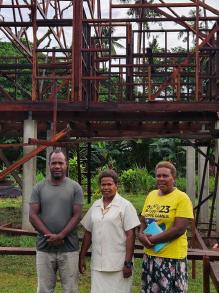
AMS has supported Buhangija Secondary School since 2017 with minor maintenance, repairs, supplies, and scholarship assistance. Buhangija provides accessible education, with fees well below 50% of comparable schools, and offers scholarships to the most vulnerable. Prospective employers look upon the private education offered by Buhagija favourably so that students can access more dignified work post-school.
Kiribati
St Louis High School is a Maristadministered school located on Tarawa, the main island of Kiribati. It is a coeducational junior and senior high school with approximately 900 students.
The construction of a new, twostorey administration building has commenced. There are 66 staff members at St Louis, including 49 teaching staff, and no dedicated administration block exists. Staff are currently spread out across several converted classrooms. The new building will be located at the school entrance and will be twostorey to accommodate all staff and provide specialty rooms.
Solomon Islands
Construction of a new classroom block at Our Lady Queen of Martys Secondary School (OLQM) on Makira Island in the Solomons hasn’t been without complications, with delays occurring due to the availability of supplies. But soon, new classrooms will be opened for students to use and enjoy, and as Form 2 student Tony says, “That could be the nicest thing that has happened to me so far!”
Tony explains that when he commenced at OLQM, his classes were held in the school dining hall. “It was a challenge,” he describes, “as the Hall had to be swept after every mealtime in preparation for classes. We had to leave our books on top of the desks so that the rats wouldn’t feed on them!”
Fellow student Bev concurs, saying, “I’ll enjoy studying more in these new classrooms because there is a lot of space and a much cleaner and safer environment.” At home in her village of Tetere, Bev and four siblings would have to walk for hours to attend the closest secondary school. Bev explains, “I love my school because I am comfortable and feel safe in the environment.”
Staff will also enjoy the new facilities. “We teachers would not have a proper table for ourselves, and we would have to share the students’ desks to put our books on because there wasn’t any space for an extra table,” says teacher Mr Solomon. Mr Solomon has taught at OLQM for six years and has seen staff and students persevere in less-than-ideal facilities. He claims the new building is “one of the best classrooms on the island.”

“I express my gratitude to AMS and all those who have helped,” says Tony. “Education protects children in Makira from risks such as drugs and homebrew. These classrooms will allow even more students to enter OLQM in the coming years.”
India
Partners and friends at Operation Rainbow facilitated an enlightening awareness program on natural farming, healthy diets, and waste recycling. The event’s theme was ‘Nurturing Growth in Small Scale Farming’. Forty-five families attended, eager to learn about cultivating vegetables and smallscale farming to support their livelihood. The initiative is a significant step towards promoting sustainable living and fostering a sense of community among the beneficiaries of the Rainbow project.
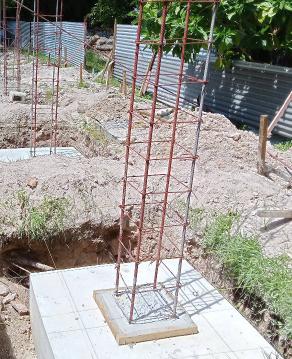
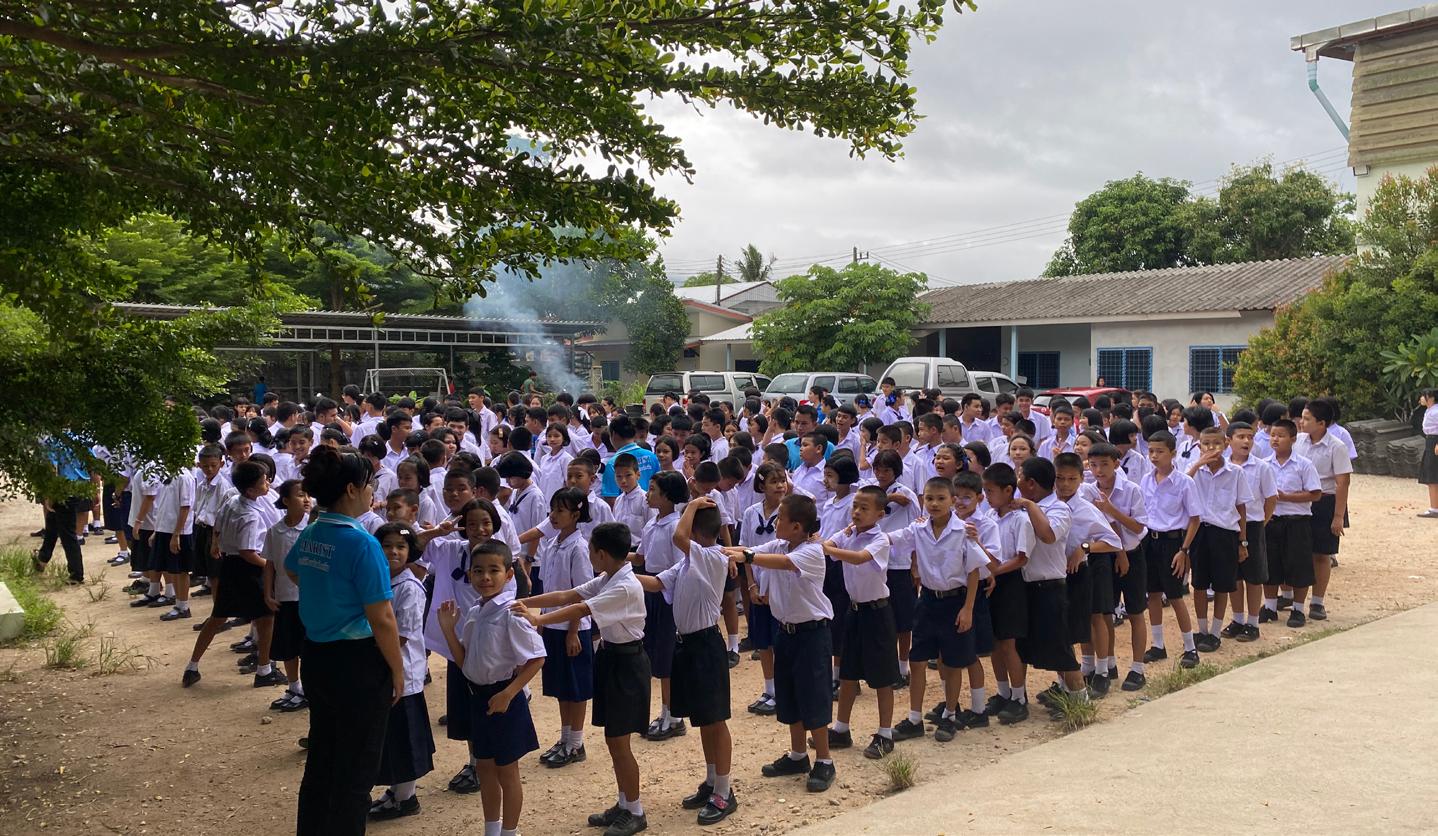
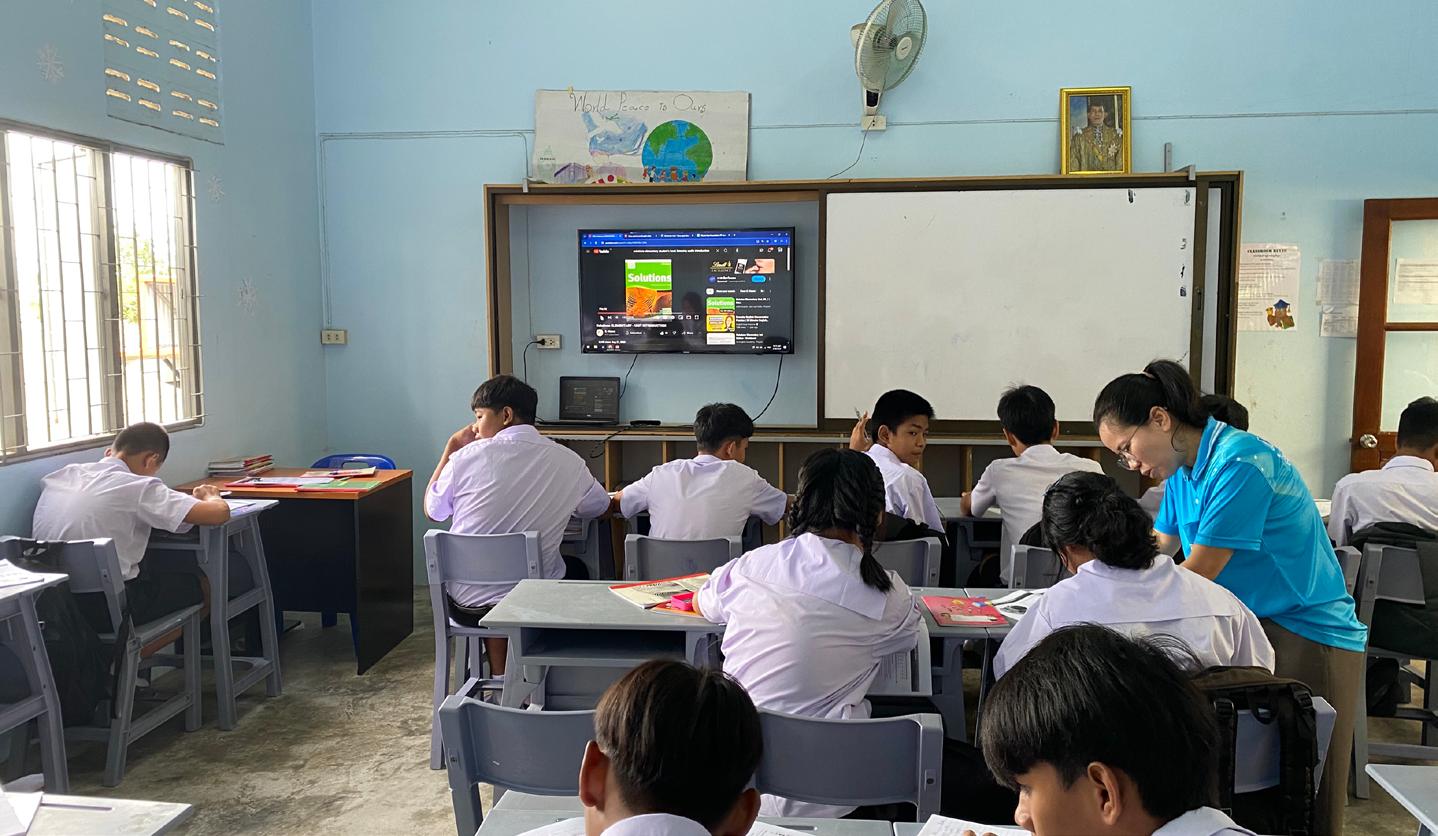
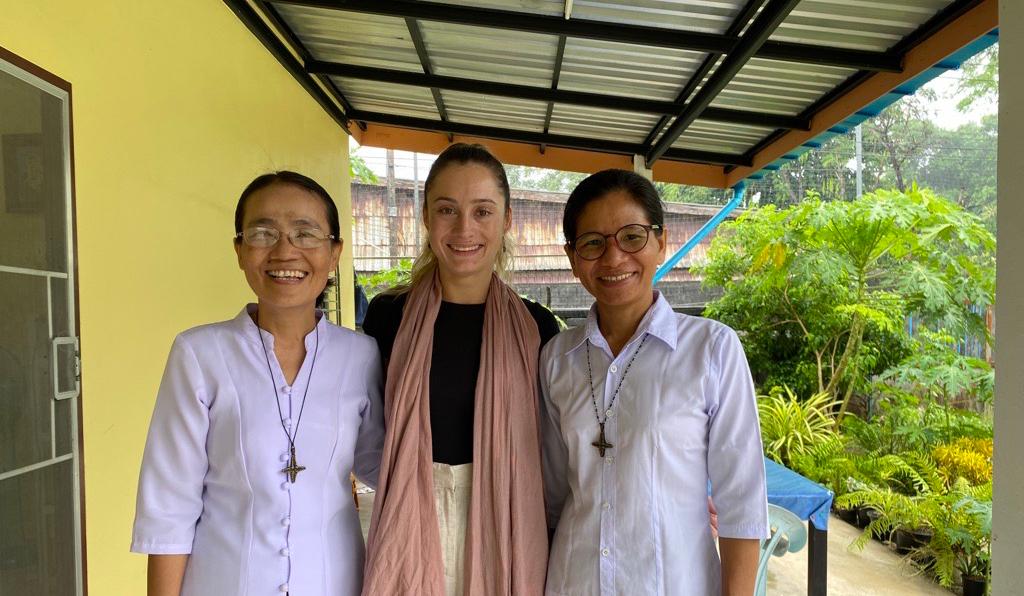
Thailand
At the time of publication, Taylor Lemmon (AMS International Programs Officer) was visiting project partners in Asia. The above photos come from her visit to the Marist Asia Foundation (MAF) in Thailand, a Marist Fathers program providing education to Burmese Migrants.
Pictured, top to bottom:
Students line up for the singing of the Thai and Burmese anthems and the raising of the Thai flag | Students studying hard in English class | Taylor Lemmon pictured with Sr Josephine and Sr Christina, Sisters of Our Lady of the Missions, who run the Anti Human Trafficking Project in Myanmar.









